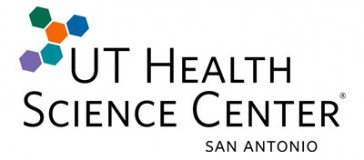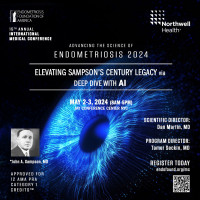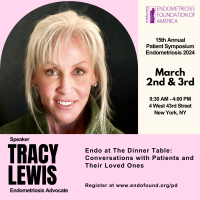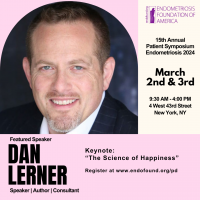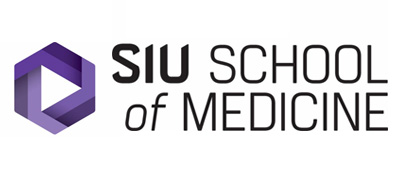
Principal Investigator:
Dr. Erin Greaves, Principal Investigator and MRC Career Development Award Fellow MRC Centre for Reproductive Health Queens Medical Research Institute
Key Personnel
Dr. Ashley Dorning, Ph.D
Dr. Chloe Hogg
Summary
The scientific problems that this project will address are two-fold: Firstly, there is obvious discord across endometriosis mouse models (of which there are many different variations published in the literature)5 and this is a potential source for slow advancement within the field. This project will shed light on why there are differences in lesion establishment when ‘menses’ vs estrus donor endometrium is used to form lesions in the pelvic cavity of recipient mice. This work will provide data that informs us which model most closely recapitulates endometriosis pathogenesis observed in women and provide a foundation for us to encourage standardization of models within the field.
Secondly, there are different theories for the development of endometriosis and it is uncertain which are the most plausible or if endometriosis arises through different
mechanisms in different women. The most widely accepted theory is Sampson’s theory of retrograde menstruation, which postulates that menses endometrial tissue that is
refluxed into the peritoneal cavity during retrograde menstruation, adheres to the lining and forms lesions. Newer theories postulate endometrium shed in neonates shortly
after birth, or that adolescent pre-menstrual spotting could seed ‘immature’ endometrium that has not undergone full decidualization into the peritoneal cavity. By comparing different donor material and resultant lesions using scRNA-Seq we may shed new light on these possible alternative theories for the etiology of endometriosis.
Bio
Dr Erin Greaves (EG) is a Medical Research Council (MRC) Career Development Award (CDA) Fellow and Principal Investigator at the MRC Centre for Reproductive Health with 11 years’ experience in reproductive health research and 5 years’ experience working in
the field of endometriosis. She has 10 published original research articles (7 first author). EG pioneered development of a unique syngeneic endometriosis mouse model that uses mouse ‘menses’ material injected into the peritoneal cavity of recipient mice to simulate retrograde menstruation. EG was awarded a prestigious MRC CDA Fellowship to start her own lab and study the role of macrophages in endometriosis- associated pain in 2014. Currently stemming from the award EG has three manuscripts in preparation, has delivered six invited lectures at national and international conferences and three invited seminars at different institutions. EG has contributed significantly to the advancement of knowledge on endometriosis pathogenesis, including development of a unique mouse model1 and its optimization for pain behavior analysis and testing potential therapeutics2. EG used the model to shed light on the role of estradiol in regulating neuroangiogensis in endometriosis3 and to infer a role for macrophage-nerve interactions in the disorder4. More recently EG has shown that macrophages are responsible for maintaining hyperalgesia in endometriosis (manuscript in preparation) and her current work is exploring how macrophages could be a novel therapeutic target in the disorder. EG won the David Healy Award for best scientific presentation at the 2017 World Congress on Endometriosis in Vancouver (and was short-listed in 2014). EG was recently awarded pump-priming funding to conduct pilot single cell RNA Sequencing (scRNA-Seq) experiments to explore the role of macrophages in endometriosis and develop single cell discovery within her laboratory. She has developed key collaborations with researchers that have advanced experience in the methodology (Prof Neil Henderson and Prof Chris Ponting, University of Edinburgh) and has access to two different single cell platforms that can be utilized based on the experimental design (10 X Genomics Chromium Controller; high number of cells, low read depth and Smart-Seq2; lower number of cells, high read depth). EG developed the ideas for and will manage the project.
Postdoctoral Researcher: Dr Ashley Dorning Dr Ashley Dorning (AD) has a PhD in neuroscience and 6 years postdoctoral research experience working in the fields of neuroscience, cancer immunology and reproductive health. AD has a wide range of in vivo modeling skills including bioluminescent optical imaging and behavioral testing and analysis. AD has been a member of the Greaves lab group for 8 months, is fully trained in the mouse model of endometriosis and during this time period has optimized the model to allow non-invasive in vivo imaging of endometriosis lesions. She has also compared differences in lesion development when different ‘types’ of endometrial tissue is used to inoculate recipient mice, leading to key insights for our mouse model. She is highly competent in immunofluorescence, confocal imaging and Western blotting as well as RNA techniques such as QPCR and in situ hybridization. AD will perform the experimental work and analysis for this project.
PhD Student: Miss Chloe Hogg Chloe Hogg (CH) has been a member of the Greaves lab group for 1.5 years and is currently performing scRNA-Seq work and being trained in bioinformatics analysis. CH will provide technical and bioinformatics guidance and support for the project.




